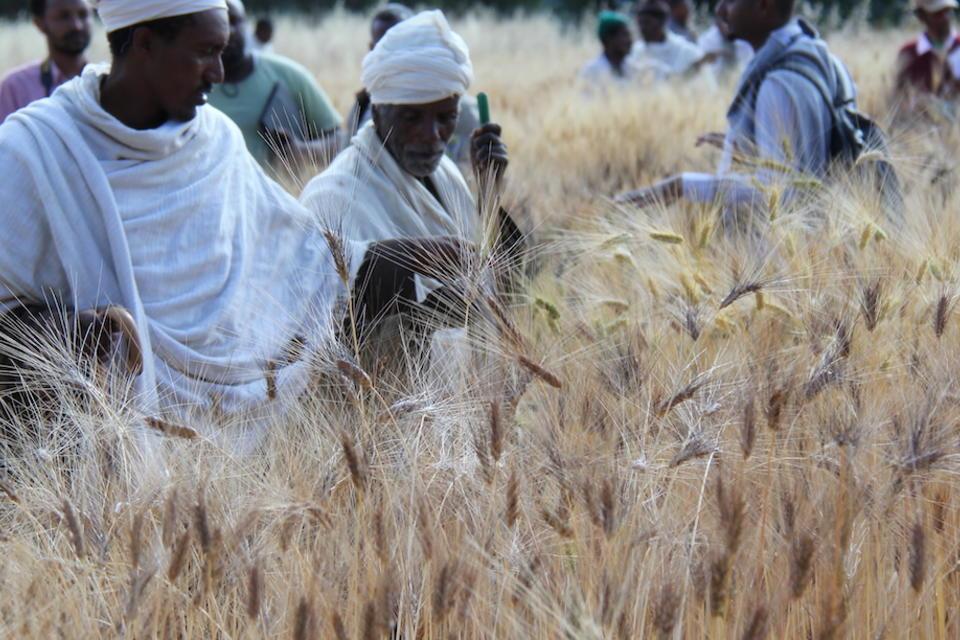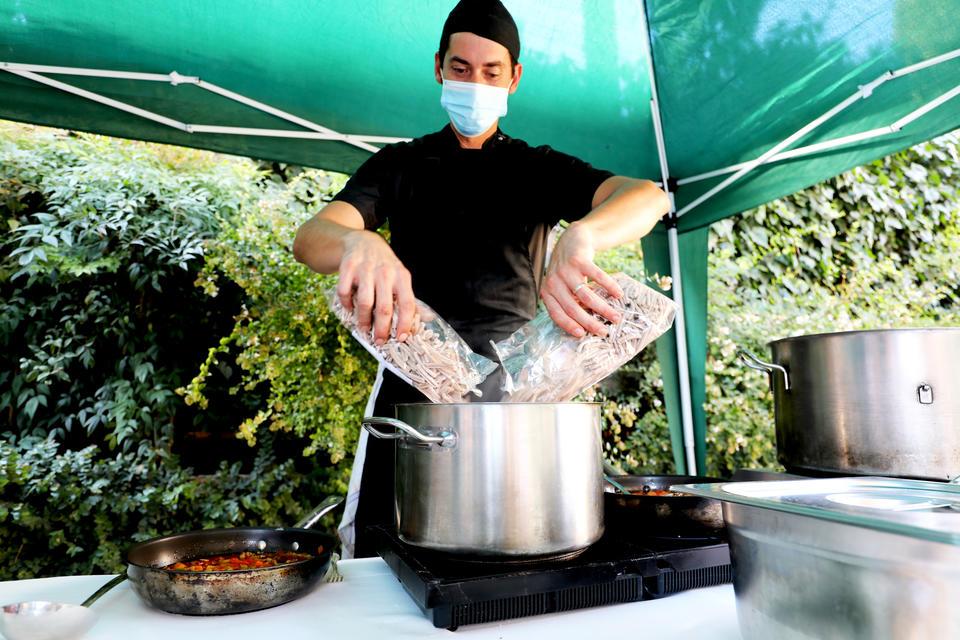From the Field Ethio-Pasta: rolling out resilient durum wheat
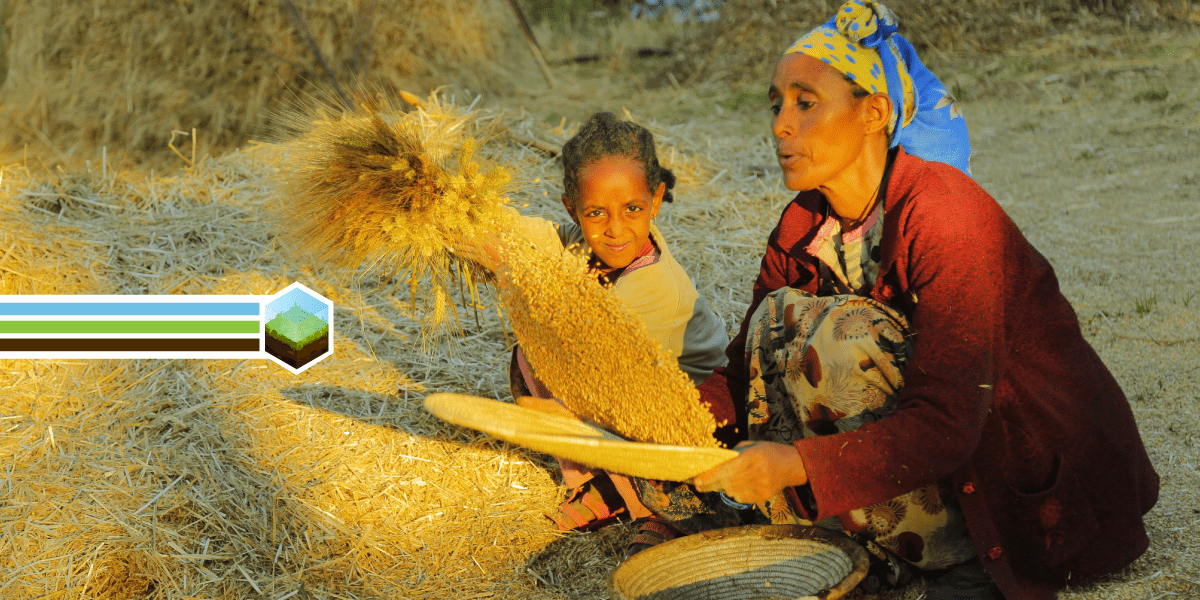
By providing smallholder farmers with productive and resilient varieties, Seed for Needs has paved the way for local durum wheat value chain development in Ethiopia. Read on for the next steps.
Since 2009, the Seeds for Needs initiative has focused on sustainably promoting use and conservation of indigenous crop diversity. Smallholder farmers equipped with better information and access to a portfolio of adapted crops can improve their productivity, enhance nutrition and increase resilience to climate change.
The path to develop durum wheat value chains
Durum wheat is a valuable commodity crop in Ethiopia that consists of thousands of different genotypes. Over the last 14 years, the Alliance has carried out a series of activities to improve the productivity of durum wheat varieties, farmers' access to selected and superior varieties, and strengthen the overall value chain.
1. Characterization
Researchers first acquired and characterized a large diversity of farmers' varieties to understand the existing genetic diversity of Ethiopian durum wheat, they used a participatory approach to involve farmers in identifying their preferred varieties. By using state-of-the-art genomic science, and massive phenotypic data, it was discovered that Ethiopian durum wheat is highly diverse and distinct from the Mediterranean types. This discovery presents an opportunity to develop unique varieties and products. More than 50 superior varieties were identified and disseminated to over 100,000 households in the Amhara, Oromia, South and Tigray regions of Ethiopia through a crowdsourcing approach. Two varieties, Rigeat and Wehabit, were nationally registered and released for production based on selected farmers' varieties.
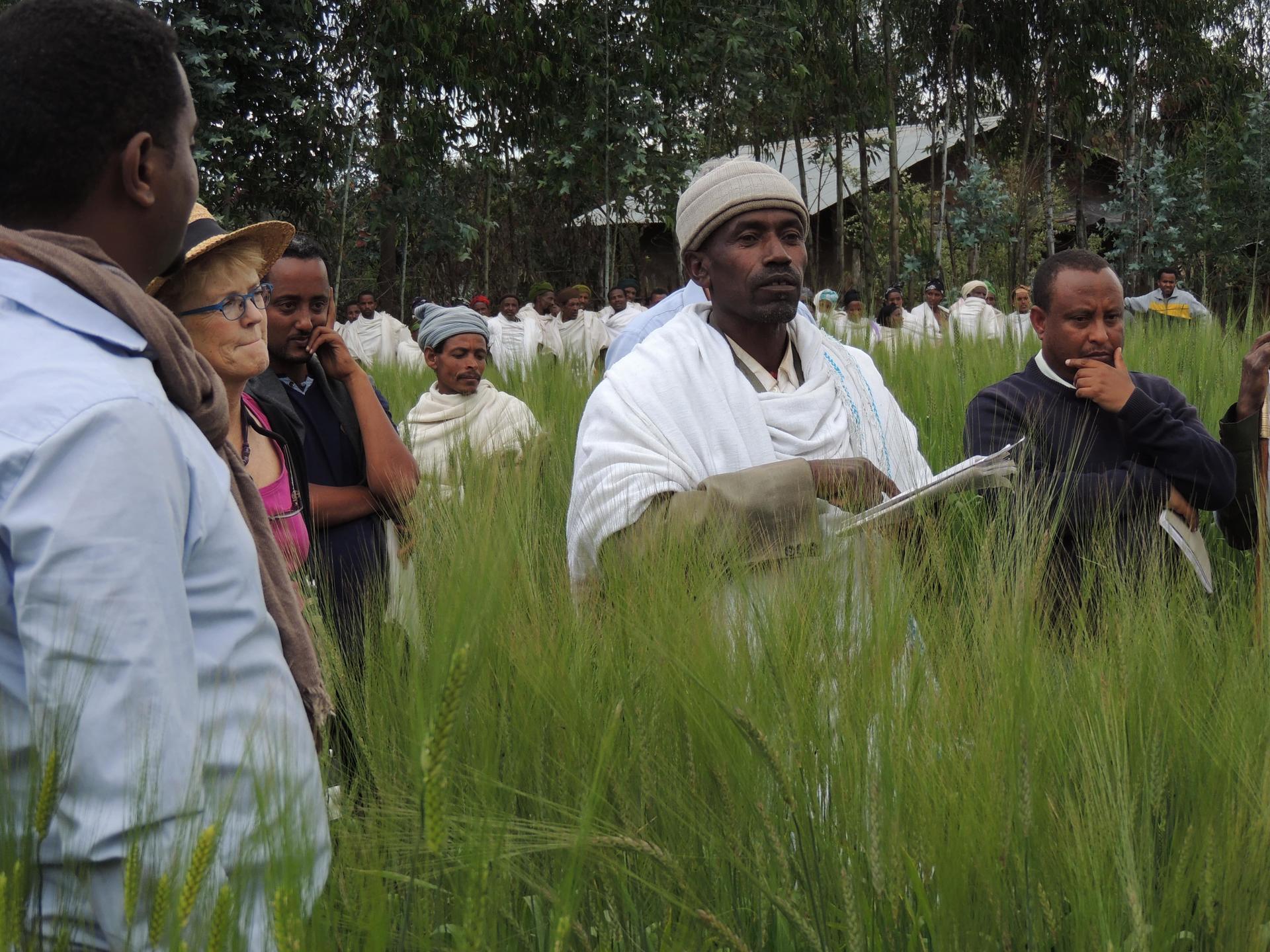
Participatory evaluation of durum wheat varieties by farmers for selection of preferred varieties. Credit: Yosef G. Kidane
2. Breeding
The breeding program in Ethiopia involvedin improving of farmers' varieties through crossing with an adaptable elite variety called Asassa. In 2013, fifty representative farmer durum wheat varieties were crossed with Asassa resulting in the production of over 6,000 recombinant inbred lines. This breeding program is considered one of the largest in Ethiopia for durum wheat. The lines have undergone testing by various research institutions for release.
By combining scientific (breeding, genetics, and genomics) and farmers' indigenous traditional knowledge, and the use of innovative on-farm variety evaluation and dissemination approaches- crowdsourcing and the TRICOT- it was possible to identify high yield, quality, and resilient varieties of durum wheat which have embraced by the farming community. These selected varieties are now grown by thousands of farmers working closely with S4N in 13 communities in the Amhara, Oromia, South and Tigray regions.
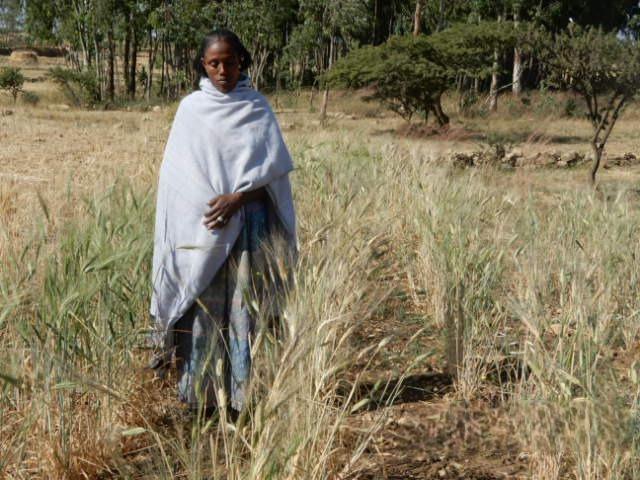
Crowdsourcing identifies adaptable varieties for local growing conditions. Drought-resistant durum wheat in the Tigray region performed well while other wheat varieties failed. Credit: Dejene K. Mengistu
Ensuring access with community seedbanks
Conserving genetic resources near farming communities and educating them on their use is central to Seeds for Needs. The initiative has constructed five community seed banks in the three regions of Ethiopia for the conservation of the resources. These seed banks also serve as education centers for farming communities and schoolchildren on the importance of genetic resource conservation to ensure their availability for the next generation.
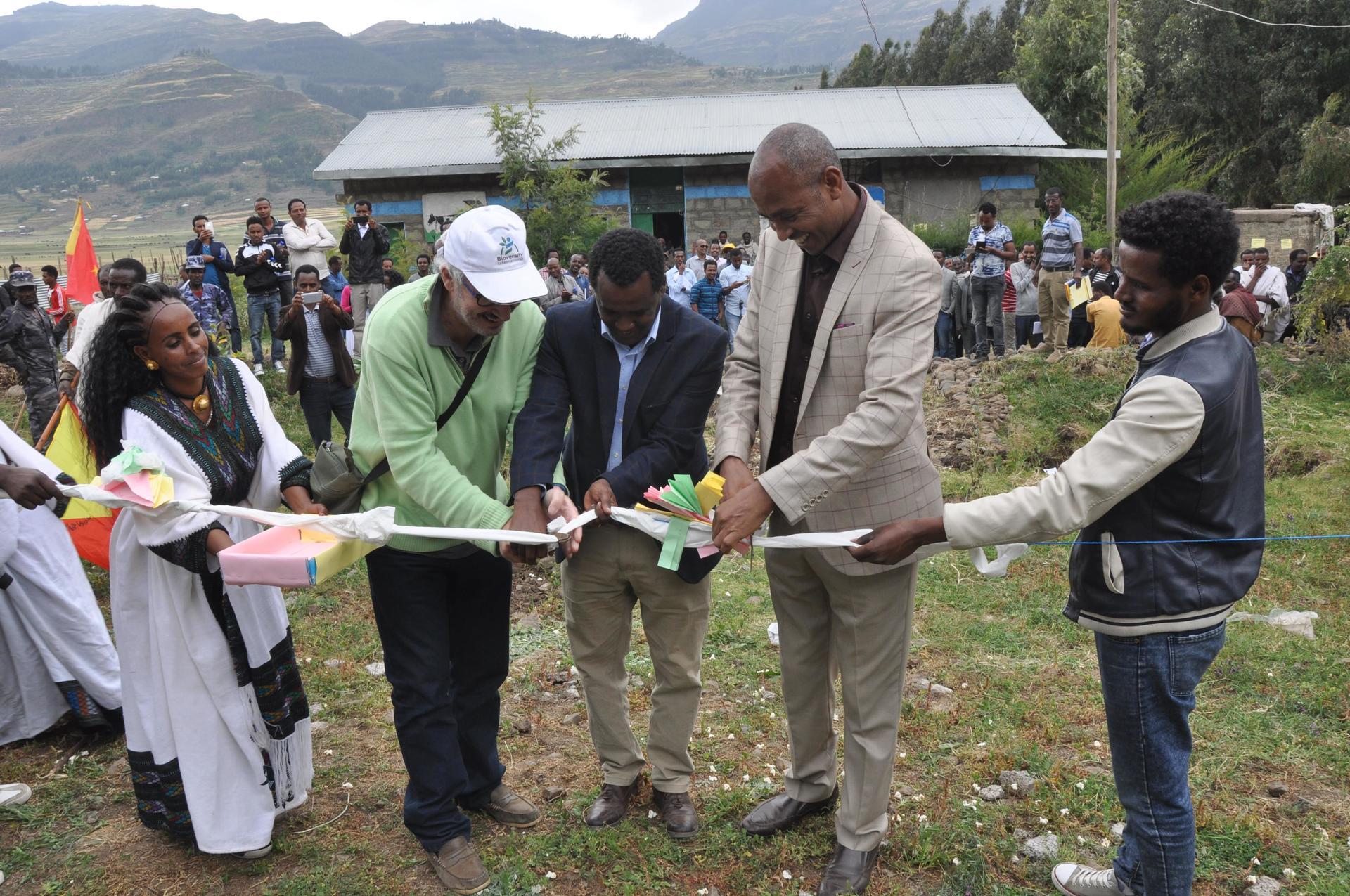
Inauguration of community seed bank build by Alliance of Bioversity International and CIAT in the Tigray region. Credit: Mulugeta Kiros
The Alliance recognizes that genuine transformation begins by empowering community at the grassroots level. The S4N initiative takes a multi-faceted approach to organize interactive meetings and discussions with the local community, engage with local schools to integrate agrobiodiversity-related activities into the curriculum, and foster direct community engagement. Besides raising awareness, these activities foster a sense of ownership and enthusiasm among community members.
Adding value: Ethio-Pasta
Although Ethiopia is the center of diversity (and likely the center of origin) for durum wheat, indigenous genetic resources are often overlooked. New products that harness local Ethiopian diversity can ensure social, economic, and environmental benefits: by creating new job and employment opportunities, new food products, and bringing a paradigm shift. Tests made on Ethiopian durum wheat farmer varieties using Italian pasta-making technology indicated their viability as specialty food products for niche and/or broader markets, contributing to Ethiopian interests in agro-industrial development.
Partnerships to go “from gene to pasta”
Both major durum wheat value chain actors- producers and processors- have been engaged and the massive demand for grain supply and processor capacity has been confirmed. Other value chain actors including distributors, retailers and consumers need to be thoroughly investigated for a complete spectrum analysis of the full value chain. The proposed Alliance project, Ethio-Pasta, aims to investigate the entire value chain and support the development of small-scale factories processing Ethiopian durum wheat varieties.
Collaborative partnerships have been established with the Italian Agency for Development Cooperation (AICS), Italian local NGOs based in Ethiopia, and national and regional Ethiopian partners to effectively implement the Ethio-Pasta project. It works hand-in-hand with AICS in building a robust traditional durum wheat value chain including the establishment of two small-scale pasta-processing factories in two communities of Ethiopia to prove the concept of “from gene to pasta” journey. Ethio-Pasta project leverages expertise, resources, and shared commitment with Italian companies, Italian NGOs operating in Ethiopia, and other national stakeholders to drive sustainable development.
The Team

Carlo Fadda
Director, Agrobiodiversity
Andrea Ghione
Project Leader, Market and Value Chain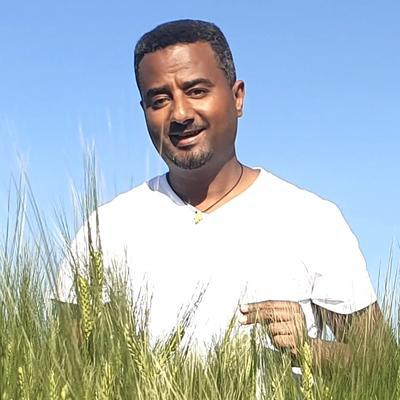
Yosef Gebrehawaryat Kidane
Senior Scientist - Biodiversity for food and agriculture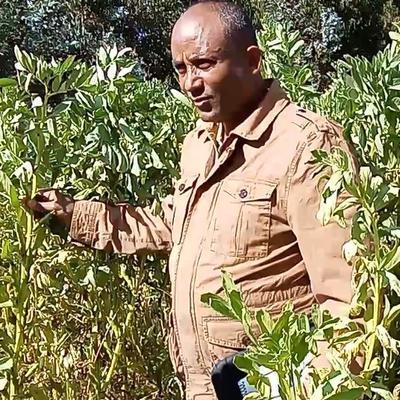
Dejene K. Mengistu
ScientistAbout Seeds for Needs
The Seeds for Needs Initiative (S4N) has involved over 50,000 farmer “citizen scientists” to identify the seeds that best suit their needs. The initiative is led by CGIAR scientists at the Alliance of Bioversity International and CIAT and implemented by national and international partners.
In Ethiopia, national partners that include: the Ministry of Agriculture (MoA), Ethiopian Institute of Agricultural Research (EIAR), Amhara Regional Agricultural Research Institute (ARARI), Ethiopian Biodiversity Institute, Oromia Region Agricultural Research Institute (ORARI), and Mekelle University (MU), and Bahirdar University,. International partners include: Scola Superiore Sant’Anna, Italy, CIHEAM BARI, Italy, Wageningen and Hohenheim Universities, Germany.
While S4N began in Ethiopia, it has expanded to include 14 countries in Africa, South America, and Southeast Asia. Projects under S4N have been implemented with financial support from various funding organizations such as the BMZ/GIZ, IFAD, FAO, The David and Lucile Packard foundation, The World Bank, IACS, and CGIAR flagship programs such as CCAFS, AfricaRISING, and WLE.


